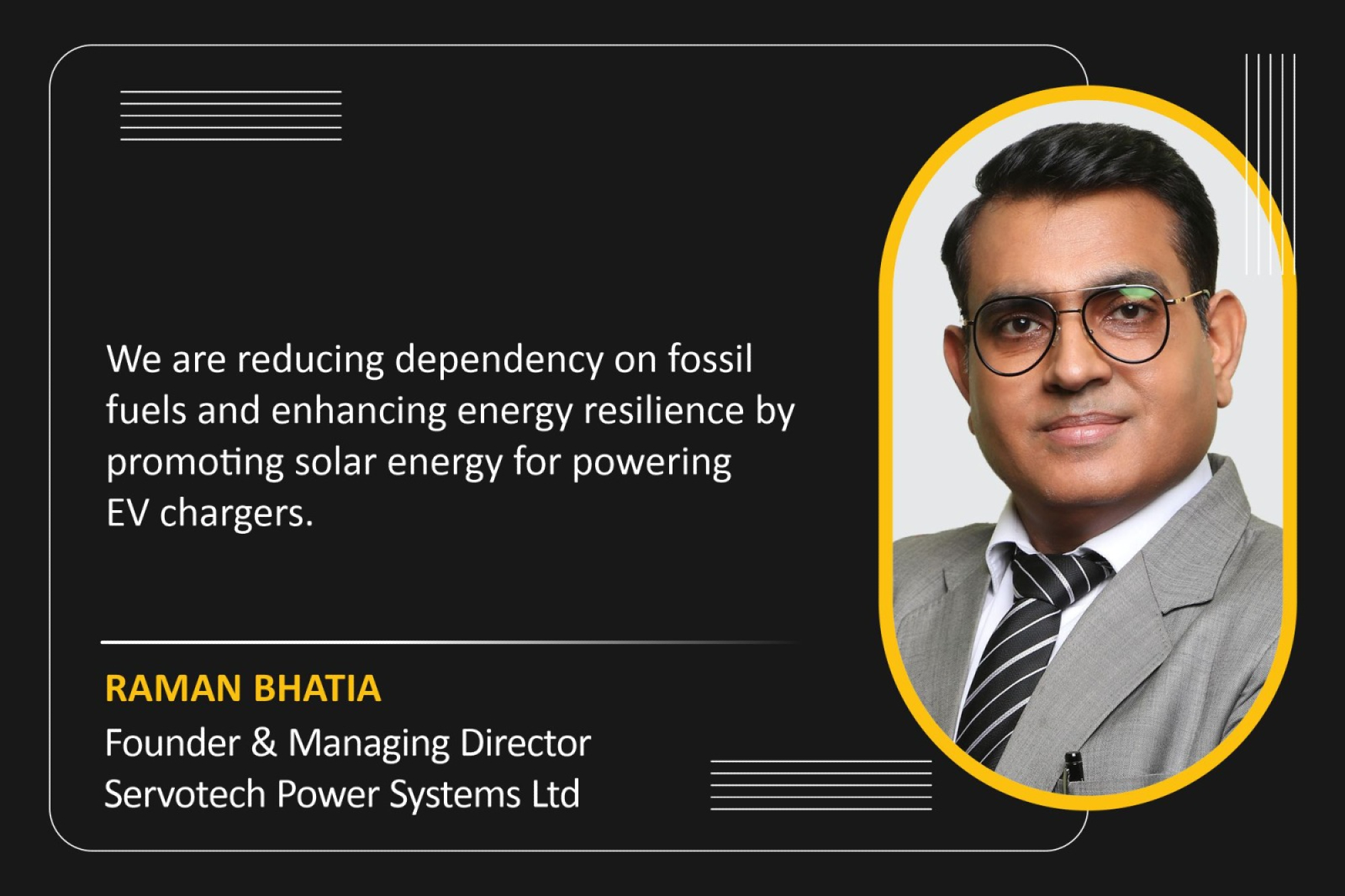State investments in EV charging foster a favourable market environment
By EPR Magazine Editorial November 16, 2024 6:03 pm IST
By EPR Magazine Editorial November 16, 2024 6:03 pm IST

Smart charging systems, vehicle-to-grid (V2G) integration, and battery energy storage systems optimise grid load, reduce peak demand, and store surplus renewable energy, thus stabilising the grid.
The focus on expanding EV charging infrastructure in India is a step towards addressing energy security challenges, but it’s not a complete solution. The country still relies heavily on fossil fuels for its energy needs. India must diversify its energy sources, promote renewable energy, and improve energy efficiency. Raman Bhatia expresses his views on the sector’s rapid expansion with the EPR Magazine.
How can EV infrastructure expansion ensure both sustainability and energy security?
As a nation, we are reducing dependency on fossil fuels and enhancing energy resilience by promoting solar energy for powering EV chargers. Initiatives like battery storage systems and smart grids are also being implemented to ensure efficient energy distribution, creating strong coordination with DISCOMs (distribution companies) for better load management. These efforts ensure that the EV infrastructure expansion does not compromise energy security but strengthens it.
Technological advancements in EV solutions like battery technology are improving EVs’ range, charging speed, and lifespan, making their adoption more practical. Smart charging systems, vehicle-to-grid (V2G) integration, and battery energy storage systems optimise grid load, reduce peak demand, and store surplus renewable energy, thus stabilising the grid. The development of ultra-fast charging and modular battery swapping stations further boosts efficiency and convenience for EV users. Additionally, renewable energy-powered EV chargers that use solar energy align with India’s sustainability goals and ensure a resilient energy future.
How are government policies boosting EV affordability, adoption, and infrastructure development?Government policies and incentives offer subsidies for EV buyers, while reduced GST rates and tax benefits make EVs more affordable for consumers. Various state-level incentives encourage manufacturers to invest in EV technologies and infrastructure. The government’s investment in EV charging networks is developing a favourable environment for the EV market by reducing upfront costs, promoting R&D, and supporting widespread adoption.
We are witnessing rapid expansion of EV charging infrastructure by employing strategies like strategic public-private partnerships and significant investments from domestic and international players. Through initiatives like FAME II, EMPS, and PM E-drive scheme, the government funds the deployment of charging stations in urban centres and along key highways. Collaborations with companies such as Servotech Power Systems and oil marketing companies are boosting the installation of AC and DC fast chargers nationwide. Furthermore, the development of solar-powered charging stations and integration with smart grids are helping to create a scalable, efficient, and sustainable infrastructure that supports the growing demand for electric vehicles across the country.
What innovative financing models support the expansion of the EV charging infrastructure in India?
India is employing financing models and investment strategies like government subsidies and private investments to support the development of EV charging solutions. Financial institutions offer low-interest financing for EV infrastructure projects, while companies secure funding from venture capital and angel investors. Models like build-operate-transfer (BOT), lease-based financing, and revenue-sharing agreements are also widely used. Additionally, initiatives such as FAME II and PM E-DRIVE, along with tax incentives, further encourage investments, ensuring adequate funding supports the rapid expansion of EV charging networks in India.
We use cookies to personalize your experience. By continuing to visit this website you agree to our Terms & Conditions, Privacy Policy and Cookie Policy.